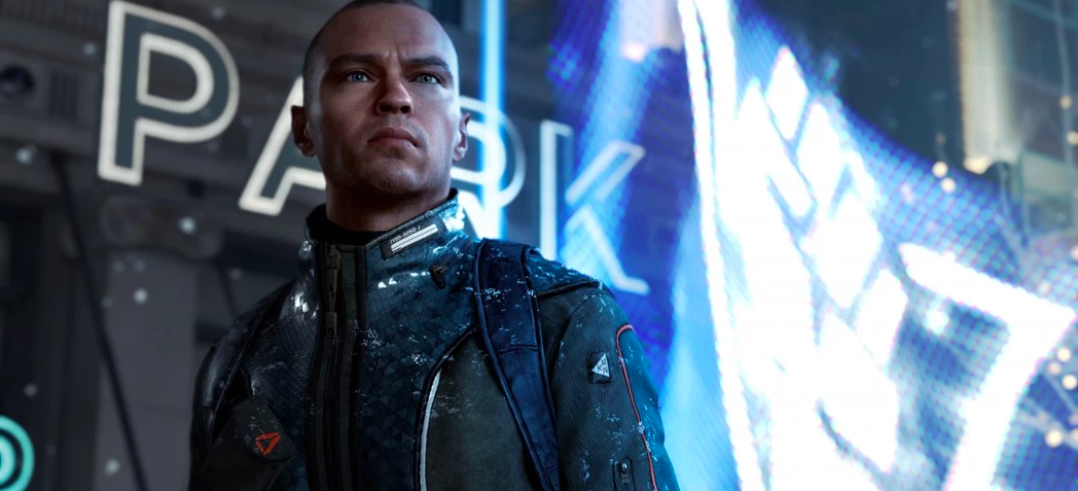Detroit, famously known as the Motor City, was once the main producer of cars in the U.S. Its cavernous factories employed hundreds of thousands of workers from the early 20th century to just past its midpoint. Many of these men and women joined together to form powerful unions, which helped secure higher wages, safer working conditions and pushed the rest of the country in similarly progressive directions. To combat this labor movement, alongside plant decentralization and downsizing, auto manufacturers began to implement automation on a massive scale.
To enthusiasts and industry insiders, automation was purely a boon. In a 1955 article called “Progress with Ideas,” Floyd G. Lawrence predicted that the future would involve industrialists learning “how to get the most of machines rather than how to get the most of people.” He saw technology providing the path toward safer, more leisurely lives, ignoring who was responsible for that technology, and what their own ends might be. A plant manager for Ford made it plain to UAW President Walter Reuther, telling him: “You are going to have trouble collecting dues from all of these machines.”
These machines achieved their masters’ goals with brutal efficiency. A mere decade after rising to significant prominence on the assembly floor, unions were significantly disempowered by small, decentralized, highly automated factories built in distant, isolated suburbs. Detroit hollowed out, and then it hardened, and in 2013, declared the largest municipal bankruptcy in American history.
At first glance, Quantic Dream’s Detroit: Become Human, a game set in a near-future Detroit, following three storylines framed by a burgeoning revolution of newly conscious androids, seems interested in addressing the implications of setting its game in a city that has gone through so much technological and labor-related upheaval. In Kara’s (Valerie Curry) first scene, driving home with her cartoonishly malevolent owner, Todd, we get glimpses of what the margins of prosperity might look like in a near-future Detroit: they pass the exposed wooden skeletons of burnt row houses; a freeway under construction looms over their blighted neighborhood.
Elsewhere, another protagonist, Markus (Jesse Williams), walks through a town square packed with humans who are protesting androids for the same reason auto workers did eighty years prior: economic anxiety. Many of the magazines you find lying around feature articles about rampant drug use and extreme levels of unemployment as an inevitable result of the adoption an android workforce.
But these promising glimpses quickly flicker out, and the game wades instead into an uninspired story about the tension between a group of androids who desire freedom and the reticence of their human masters to provide it. Instead of attempting to explore the history of how robotics and automation are wielded as weapons against labor, how they are a symptom, rather than a root cause of out-of-control profit motives and worker disempowerment, we instead must suffer through paper-thin allusions to America’s civil rights struggle: robots on the back of the bus, belligerent masters yelling at chastised servants, and unceasing references to slavery. Instead of a real discussion about power hierarchies, we’re served milquetoast Martin Luther King Jr. quotes and Instagram-ready parables about equality and freedom.
Despite deviating barely an inch from the broad archetypical models they’re sourced from, Detroit’s characters manage to do an admirable amount of narrative heavy lifting—with little help from the game’s wider storyline or themes. The pair that clearly stand out are Conner (Bryan Dechart) and Hank (Clancy Brown), whose heartwarming buddy cop plotline is always a pleasure to return to. Conner, an android from CyberLife, the corporation which makes all of Detroit’s androids, is sent to assist Hank, a hard-boiled detective in tracking down rogue androids and figuring out what is causing them to reject their normally subservient programming.
As the game progresses, Hank starts to come around to androids and Conner is forced to decide where to place his allegiance. Their story works not necessarily because of any connection to androids, but because it has all the makings of good drama: a new guy who wants to please his partner, but who also has personal motives that stand in the way of their friendship (see: any romantic comedy of the late nineties; see also: The Fast and The Furious). The way Detroit structures Conner’s motivations at cross-purposes with the rest of the cast (he’s a cop, everyone else is basically a criminal) also manages to create some fascinating dilemmas that challenge and enrich the interactive fiction formula.
The inclusion of interactive elements can benefit all sorts of stories, from solid ones like Telltale’s The Walking Dead, and Cardboard Computer’s Kentucky Route Zero, to not very good ones like Detroit. As often as I shake my head at awkward dialogue or clumsy subtext in Detroit, I find myself white-knuckle gripping the controller in panic as I attempt to keep my character from tumbling off a rooftop or to defend myself from a previously hidden assailant. Considering how many games I have picked up but never finished, thanks to characters and stories which fail to meaningfully connect (looking at you, A Way Out), Detroit’s ability to keep me invested to the end is an impressive achievement—one that’s unfortunately squandered by its tone-deaf political commentary and the studio responsible for it, Quantic Dream, whose own unresolved ethical controversies remain a disturbing backdrop to a game as sanguine about equality and freedom of expression as Detroit…
Continue reading on Waypoint

